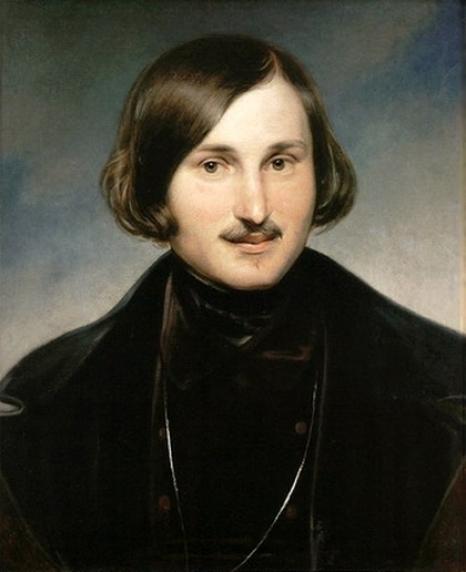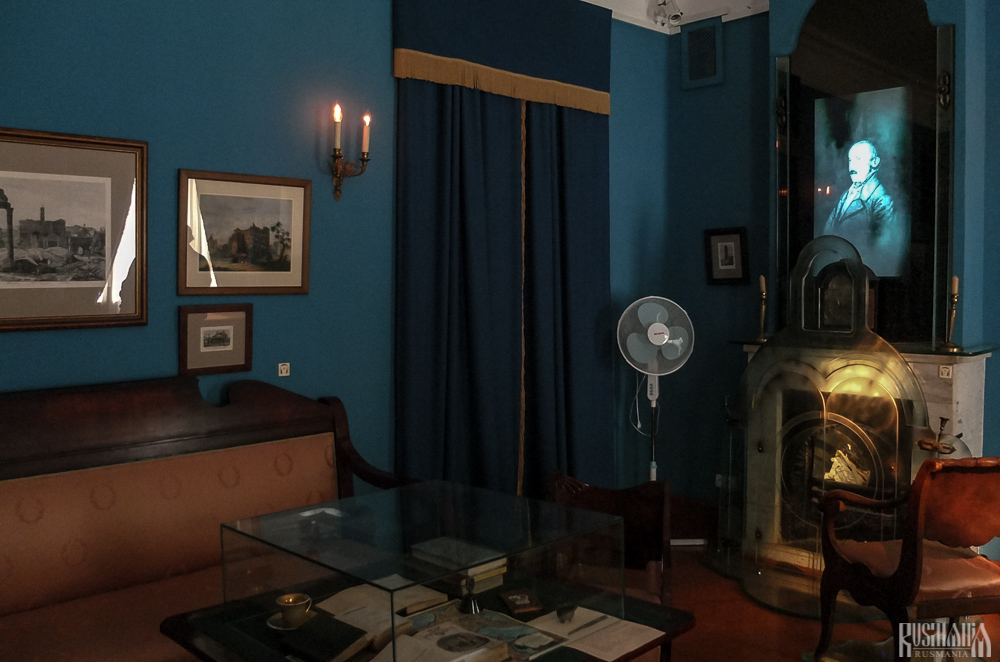Gogol

The Ukrainian-Russian author Nikolai Gogol is famed for his witty, surreal and satirical stories and his works can be divided into two periods. His earlier short stories were inspired by Ukrainian folklore and published in two volumes: Evenings on a Farm Near Dikanka and Mirgorod (these include the stories A Terrible Vengeance, The Night Before Christmas, The Tale of How Ivan Ivanovich Quarrelled with Ivan Nikiforovich, Viy and Taras Bulba). His later St Petersburg cycle satirised the corruption and bureaucracy of the Russian Empire, such as The Inspector General, The Nose, The Overcoat and the Diary of a Madman. His masterpiece though is considered to be his unfinished novel Dead Souls, also dealing with the theme of corruption, but this time more of the moral variety.
Nikolai Vasilievich Gogol was born in 1809 in Bolshie Sorochintsy in the Poltava Governorate, Russian Empire (now Velyki Sorochyntsi in Ukraine's Poltava Region). His father instilled in him a love for the theatre and the young Gogol showed a flare for acting and comedy. He enrolled at the grammar school in Nezhin (today Nizhyn in Ukraine's Chernihiv Region) where he first began writing, while continuing his acting.
After graduating he moved to St Petersburg with dreams of becoming either a writer or an actor. His first attempt at writing was a great failure but his short stories about Ukrainian peasant life and folklore won him many fans, including Aleksandr Pushkin who became a firm friend, supporter and advisor. When his play The Inspector General offended the St Petersburg elite with its depiction of pomposity and corruption, Gogol left Russia for Europe and settled in Italy for over a decade.

Back in Russia the publication of the first part of Dead Souls established Gogol's reputation as a master of satire, however by this period Gogol had become deeply interested in religion and mysticism and began seeing sin in his literary work. In 1852, in a fit of madness, the author threw his manuscript of the second part of Dead Souls into the fire. He died shortly afterwards at his home in Moscow.

He was buried at the Danilov Monastery in Moscow, but when the monastery's cemetery was closed by the Bolsheviks, Gogol's remains were reinterred at Moscow's Novodevichy Cemetery. It is said that when his coffin was opened Gogol's body was lying face down which gave rise to rumours that Gogol was buried alive.
Sights connected with Nikolai Gogol:
- Nikolai Gogol House-Museum in Moscow